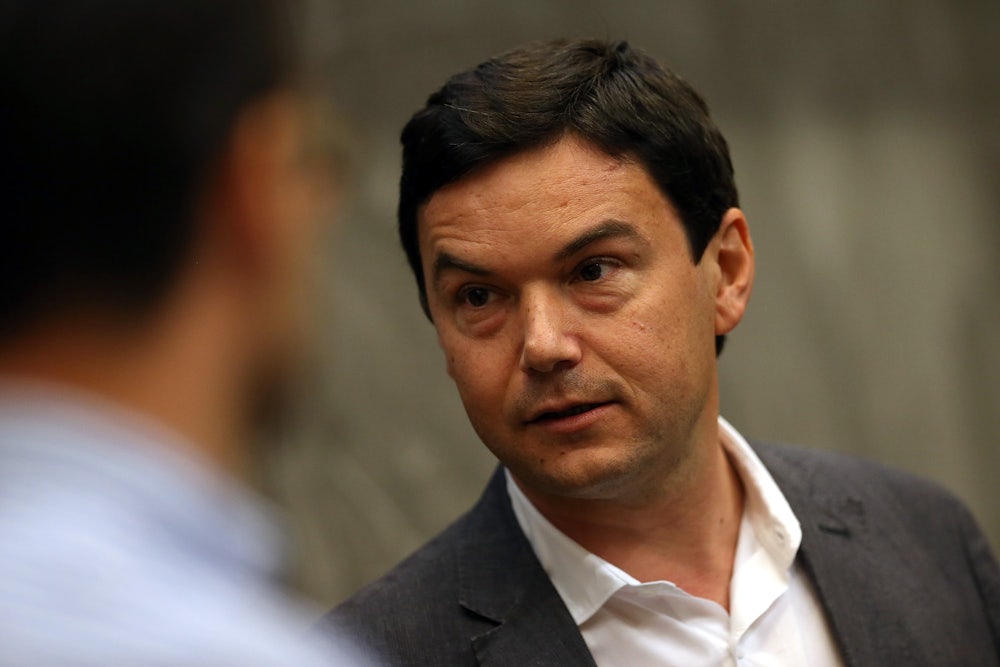Piketty and the economists Emmanuel Saez and Gabriel Zucman have released a study showing that fully one half of the American population has been “completely shut off from economic growth since the 1970s.” This means that while the economy has nearly doubled in size in that time period, roughly 120 million working adults have seen no income growth, even when you factor in the income transfers they receive from the government. While other studies have shown similar findings, this is considered the most sweeping, revealing “the full impact that tax payments, government spending, noncash benefits, and nontaxable income together have on inequality,” according to The New York Times.
The vast majority of the wealth produced in the last three and a half decades went, of course, to the very rich, who largely made their money through investments, as opposed to salary.
The dynamic on display here, exacerbated by the 2008 financial crisis, at least partly explains the deep economic dissatisfaction that turned 2016 into a change election—despite the fact that President Barack Obama is leaving the economy in ostensibly good shape. The punch line is that Donald Trump’s proposed policies will only broaden inequality in this country: His tax cuts would deprive the government’s coffers of $6.2 trillion in revenue over the course of ten years, according to the Tax Policy Center. This is an almost comically bad proposal. “There have never been any legislative proposals that I’m aware of that would come anywhere near $5 (trillion) to $6 trillion in deficits over a decade,” Len Burman, one of the report’s authors, told The San Francisco Chronicle in October.
Whether Trump will follow through on his wild pledges now that he’s about to take control of the White House is another question. But it’s worth noting that there was only one candidate who was actually going to try to reverse this state of affairs.
